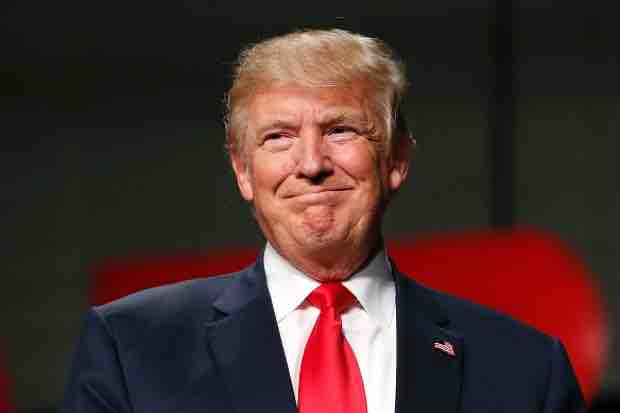Today’s reports about the confident noises coming from Hillary Clinton’s camp made me think about the reports I picked up about how confident David Cameron was about the EU referendum on voting day. We later found out, his pollster Andrew Cooper had research from his firm, Populus, predicting a ten-point victory. The MPs I spoke to, who had been out campaigning in the field, seemed to agree: after all this fuss, Brexit would all blow over. By lunchtime on polling day, the bookmakers put the odds of Leave at 15pc; they would later sink to 7pc.
 The noises that I picked up – that noises pretty much everyone in my trade were picking up – hummed the same tune. Just like today. Who, out there, is predicting that Donald Trump will win? About as many people who predicted that Leave would win the EU referendum. Seeing Hillary fans celebrate tonight also reminds me of the Democrats I saw hug each other with such glee at their rally in Boston on election night 2004 – where the final polls, again suggested a John Kerry triumph. My friend Chris Ayres and I were in a hotel overlooking Copley Square, where they had all gathered, and watched a victory rally turn into a wake.
The noises that I picked up – that noises pretty much everyone in my trade were picking up – hummed the same tune. Just like today. Who, out there, is predicting that Donald Trump will win? About as many people who predicted that Leave would win the EU referendum. Seeing Hillary fans celebrate tonight also reminds me of the Democrats I saw hug each other with such glee at their rally in Boston on election night 2004 – where the final polls, again suggested a John Kerry triumph. My friend Chris Ayres and I were in a hotel overlooking Copley Square, where they had all gathered, and watched a victory rally turn into a wake.
This isn’t to say that Hillary will lose tonight. Just that we have no means of being sure because the last few elections have taught us that there’s no such thing as political science. Early last year we were assured that the pollsters had corrected the mistakes that led them to get the 1992 election so wrong. In fact one polling analyst, Nate Silver, called every state right in the 2012 presidential election. His subsequent book, The Signal and the Noise, represented perhaps the peak of the new faith in pollsters as high priests. His argument – in effect – was that developments in opinion polling and computer modelling (the signal) now predicted the future so we didn’t need to listen to pundits (the noise).
His fascinating book seemed to herald a new era, in which certain statisticians would present themselves as shamans who could reveal the truth of our political future. There was a a general belief that pollsters had done a Newton on politics, and found ways to predict what decisions we voters are going to make with an incredible degree of accuracy. There were not just more polls than ever, but sophisticated computer models telling us the probability of various outcomes. There was the May2015 website, with beautiful graphics and its own computer predictions. Perhaps the height of this hubris in Britain was a computer model built by Populus called the ‘Predictor’ which gave David Cameron a 0.2 per cent chance of a majority.

Just as there was 0.2pc chance of a Cameron majority, Princeton University is now saying there is a 1pc chance of Trump winning. It has advised its activists to campaign instead in the Senate and House campaigns because the presidential race is “basically settled”. It backs up its point with many graphs and statistics from its algorithms.
The moral from recent years? You can put as many decimal points on an educated guess as you like, but it’s still a guess. Polling has improved – YouGov showed Leave ahead during the referendum, for example. But as we have seen, all the pollsters are capable of getting it wrong.
As I wrote in the Daily Telegraph yesterday, humans are too complicated to have their behaviour captured and predicted by computer algorithms. This is why, as Karl Popper once put it, we can predict the precise time of lunar eclipses several decades into the future – but revolutions seem to always take us by surprise.
I hope America isn’t on the brink of such a revolution. The opinion polls suggest it isn’t. But as we have now learned to ask: what do they know?
 After the American people have voted, what next for the US and the rest of the world? Join panellists including Sir Christopher Meyer, KCMG, former British ambassador to the US, for a discussion chaired by Andrew Neil on 30 November at RIBA, London. Tickets include a drinks reception. In association with Seven Investment Management. Book now.
After the American people have voted, what next for the US and the rest of the world? Join panellists including Sir Christopher Meyer, KCMG, former British ambassador to the US, for a discussion chaired by Andrew Neil on 30 November at RIBA, London. Tickets include a drinks reception. In association with Seven Investment Management. Book now.








Comments